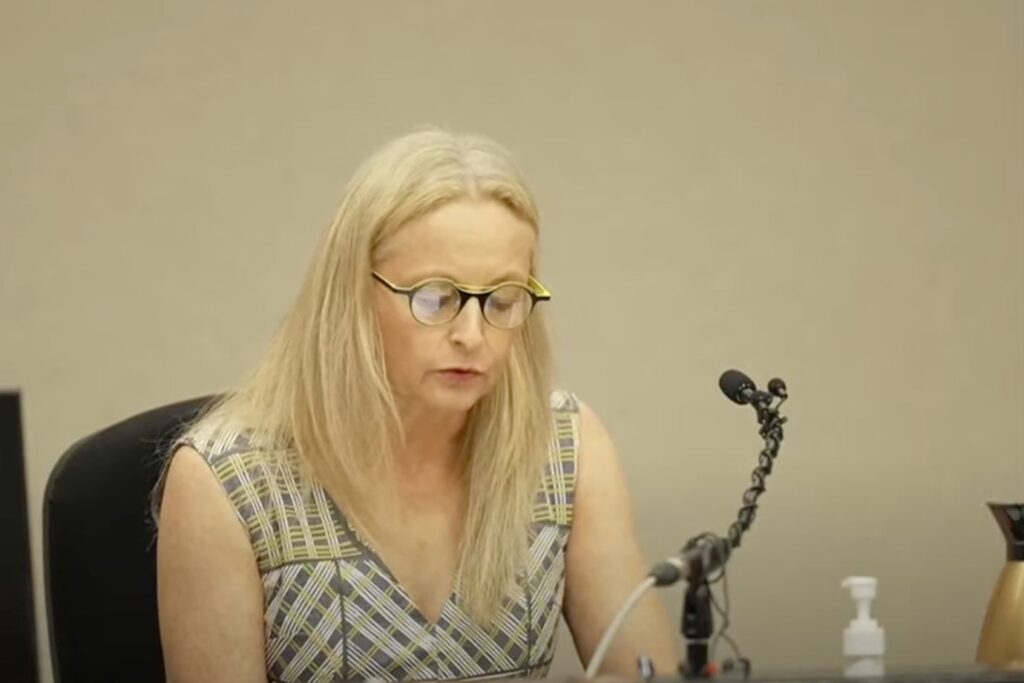After more than a year of investigating the domestic violence killings of four Aboriginal women, the Northern Territory’s coroner Elisabeth Armitage has handed down her final report.
More funding, specialist training for frontline workers and a peak body for the domestic, family and sexual violence (DFSV) sector in the Northern Territory are some of the 35 recommendations from Judge Armitage, who said the recommendations were nothing “radical”: rather, something that the DFSV sector has been fighting for for a long time.
Judge Armitage described the “plague of DV” as “our horror” and “our national shame”.
“Domestic and family violence is present in our homes, on our streets, in our shopping centres and parks, on our beaches and at our bus stops. It is happening right now,” Judge Armitage said as she handed down the report in Alice Springs today.
“Right now, 000 calls are being made and first responders – police cars and ambulances – are being dispatched.
“Given the recent loss of life, and the extent of the horror, no further delay can be tolerated.”
For the last 12 months, Judge Armitage has been investigating the deaths of four Aboriginal women in the Northern Territory: Kumarn Rubuntja, Kumanjayi Haywood, Ngeygo Ragurrk and Miss Yunupiŋu.
Judge Armitage read out the horrific stories of these women and the years of violence and abuse they endured before their untimely deaths.
“This is not just an unfolding tragedy for those families most directly affected,” Judge Armitage said.
“It is an existing tragedy for our community and our agencies and institutions that work to serve our community. It affects the Norther Territory every single day.”
Aboriginal and Torres Strait Islander women are disproportionately affected by violence: they are 31 times more likely to be hospitalised, and eight times more likely to die from DFSV, than non-Indigenous women.
It’s even worse in the Northern Territory, which has the highest rates of DFSV in the country. In fact, the Northern Territory’s rate of intimate partner homicide is seven times that of the national average.
Since the year 2000, DFSV has taken the lives of 87 women in the Northern Territory – 82 of these women are First Nations women.
According to police, there has been a 117 per cent increase of DFSV in the last 10 years, and they project it will increase another 73 per cent in the decade to come.
Judge Armitage said that since June this year, eight Indigenous women, and one sister-girl, have died allegedly from DFSV.
“Statistics are numbers, but the people they count are not,” Judge Armitage said.
“All of these women were daughters and sisters and aunties, and some of them were mothers. Together, their stories help us understand the nature of the problem.”
In Judge Armitage’s report, one of the key recommendations from the 35 included a major boost in funding, especially to frontline services, emergency service responders and women’s shelters.
Earlier this year, a Senate inquiry into the high rates of missing and murdered First Nations women and children in the Northern Territory heard from several advocacy and legal organisations just how dire funding for frontline services is: the Senate committee heard that the NT receives just 1.8 per cent of Australia’s domestic violence funding, despite having some of the worst domestic and family violence rates not just in the country, but around the world.
Other recommendations from Judge Armitage included establishing a peak body that would represent and advocate for the sector on a national level, as well as a rollout of specialist training for frontline workers – like healthcare workers and police – delivered by experts in the space.
The NT government is yet to respond to Judge Armitage’s recommendations.
Feeling worried or no good? No shame, no judgement, safe place to yarn. Speak to a 13YARN Crisis Supporter, call 13 92 76. This service is available 24 hours a day, 7 days a week.
If you or someone you know is experiencing, or at risk of experiencing, domestic, family or sexual violence, call 1800RESPECT on 1800 737 732, text 0458 737 732 or visit 1800RESPECT.org.au for online chat and video call services.
If you are concerned about your behaviour or use of violence, you can contact the Men’s Referral Service on 1300 766 491 or visit http://www.ntv.org.au.


